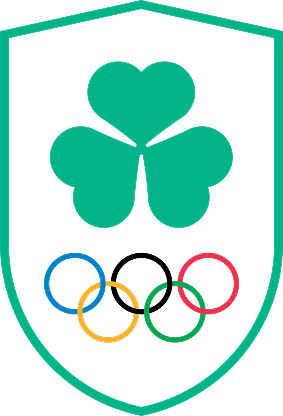Ex-pro player and Olympian Tom Reidy is the new high performance director of Badminton Ireland.
The appointment follows a decision by Badminton Ireland to strengthen its high performance team after the London Olympics where, for a second, time, two Irish players had qualified.
Reidy, originally from Adare, Co Limerick, played for the USA in the men’s doubles at the 1992 Olympic Games. He then moved to Swede where he player pro badminton for two years before beginning a distinguished career as a coach, most recently working at the Swedish National Badminton Centre.
Reidy has already taken the Irish squad for one session at the National Training Centre in Marino.
Current performance manager Michael Watt from Belfast moves to the position of Programmes Manager, taking care of administration and paperwork.
Dublin-based Dan Magee continues as national coach, answering to Reidy and managing the high performance centre daily at the Marino Institute of Education.
Along with Badminton Ireland CEO Richard Vaughan, the trio will make up the Badminton Ireland HP Committee.
For further information, an interview with Tom, or a visit to the National Performance Centre in Marino, Dublin, please contact Richard Vaughan 0860288555 or rvaughan@badmintonireland.com
TOM REIDY – Background article:
Tom hails from Adare, the Co. Limerick town that also produced Pat Marron and a number of other top ranked players in the 1970s, thanks to the hard work of Brother Dwane, a local Christian brother and an inspired coach both of football and badminton.
By the age of 14, Reidy was reckoned the best U-18 player in Munster and although equally good at football, opted to concentrate on his badminton. Ireland in the ’80s was not the place for a young lad wanting to make his way in the Badminton world and when he left school, Reidy went to England with the aim of winning a European Junior title. He got close, reaching the last 16.
Next stop was the USA. “There was no work here in the 1980s. I went to the USA not for my sport but to get a job and a future. I found myself playing badminton over there and I was lucky – the association funded my degree, so I would study and play part time.
“When I hear the kids telling me they can’t train because they’re studying for the leaving Cert that’s what I tell them. I studied for my degree and qualified for the Olympics.”
Reidy was soon established as one of the top players in the USA and was something of a doubles specialist. For the 1992 Olympic Games in Barcelona, where badminton was part of the programme for the first time, he teamed up with Benny Lee on the US team.
They swept aside a Portuguese pair in the opening round and then went out to a pair from Indonesia. “Then in 1994, I got the chance to play in Sweden in a professional league. Sweden was producing lots of good players then and it was the place to go to. I played as a pro for two years, then met my wife and decided to stay.”
At that time, he wasn’t planning to start coaching. “I kind of fell into coaching really. The English player Steven Butler was appointed as head coach in the USA and he asked me to join him. I was his assistant for a year before coming back to Sweden where I was involved in club coaching with Göteborgs BK and also with the national squad, including the U-17 and U-19 players.”
A stint at the Swedish national badminton centre in Malmo followed. During this time, Irish squad players, including Chloe Magee and, later, her brother Sam, trained with Reidy.
“Chloe came to me when she was only 17 in 2006 and we had two brilliant years when she qualified for the 2008 Olympics in Beijing.” There was also success for Sam, who teamed up with French player Sylvain Grosjean to win a European junior doubles title in 2009.
Reidy is thrilled to be involved with the new Irish set-up.
“I think the set-up here is very good and will help both players and coaches get what they need to improve. I’m seeing lots of talented players – the challenge for them is to keep going.”
Top priority is a long-term plan. “I didn’t do a lot of planning in my career, but it is vital. Too many promising players think they’ll give it a year or two. That’s not how it works -it can take seven or eight years of hard training before you get anywhere. It takes commitment. You must work hard, be patient, remember your goals – and have fun!”
